- Homepage
- News and Features
- Mental Health Week: How David found happiness in greenkeeping
Mental Health Week: How David found happiness in greenkeeping
Ahead of Mental Health Awareness Week, we hear about one man’s journey from a breakdown to discovering the profession that would change his life.
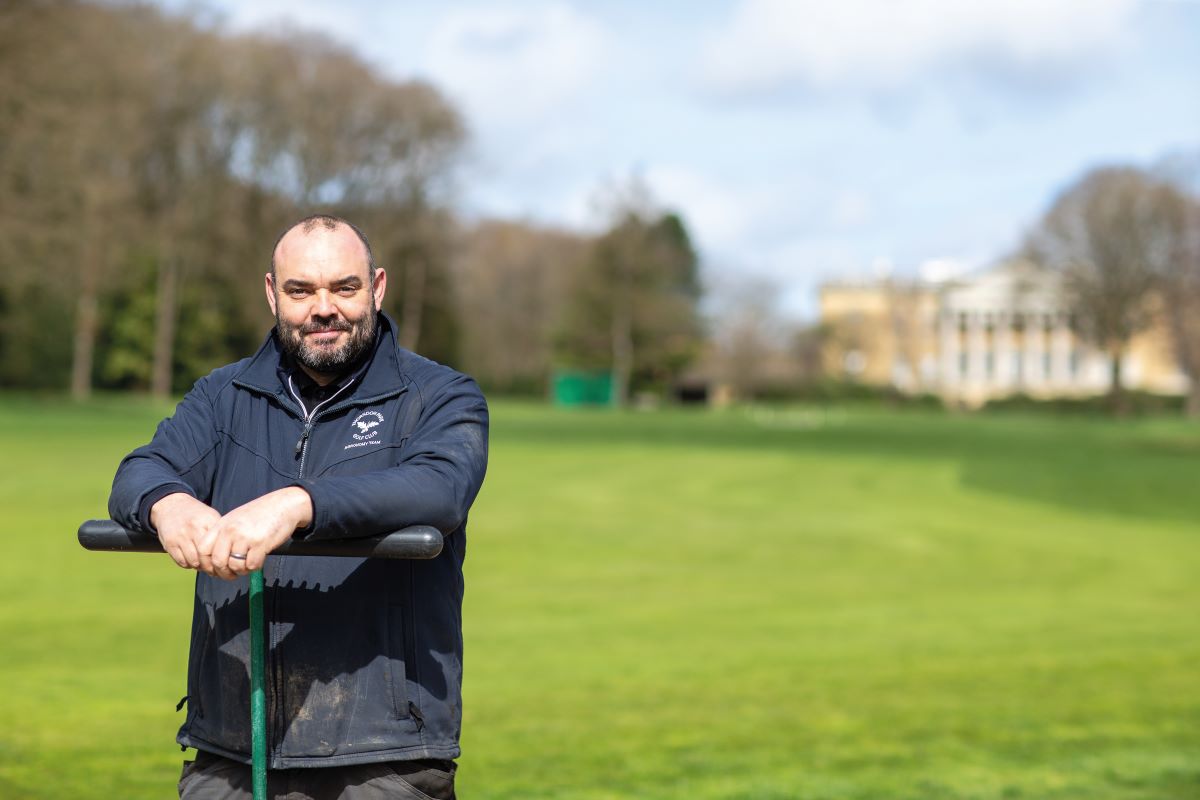
“I got to the point where I couldn’t cope anymore,” confides David Byron, who is disarmingly candid for someone recalling an experience many would find difficult to talk about.
Thorndon Park’s head greenkeeper is reflecting on the position he found himself in more than 15 years ago, when the daily grind of a high-pressure job running a pub and hotel simply got to be too much for him. He was working long hours and, though the pay was good, the support was non-existent and the expectations crippling. The surprise is not that David suffered a breakdown, but that he lasted so long before it happened.
“I was doing so many hours and missing the family – I’d not long had a baby daughter,” he explains. “The company I worked for wasn’t very good at looking after staff and their wellbeing. We had 40 staff that I was responsible for, and I was there sometimes from six o’clock in the morning until one o’clock the following morning. That was six days a week. In the end I had to come out and go long-term sick.”
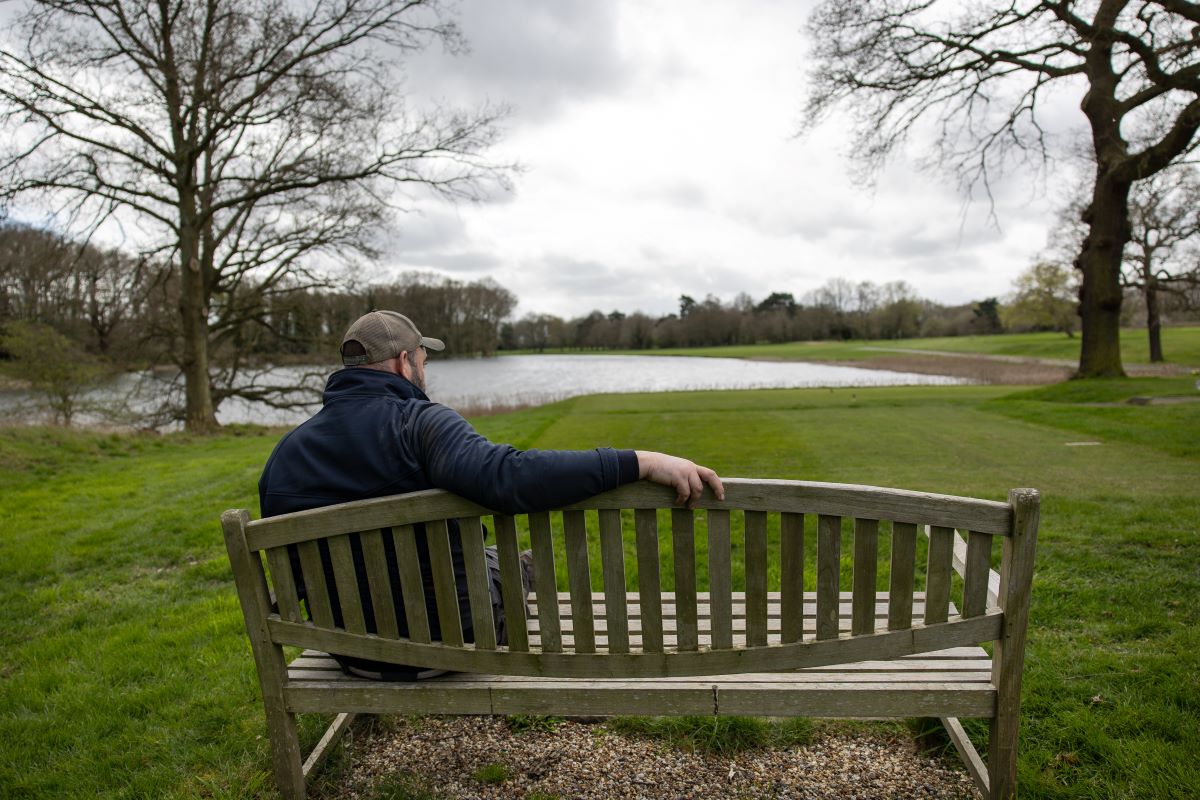
A shock at the doctor’s
David had been to see a doctor and, while it was not news to him that his mental health was at a low ebb, he was taken aback by the findings of some tests he underwent. “The doctor gave me a couple of aptitude tests and asked a lot of questions and, even though I didn’t feel like it, they told me I was in the range for suicide. I got signed off for six or seven months.”
With bills to pay and a family to support, David tried to return to work and see if he could find a way to manage those factors that had overcome him previously – the demanding workload, the poor work-life balance, the absence of any meaningful backing from his employer. It didn’t go well. “They tried to pin a load of problems on me that had occurred when I was off. I can’t be accountable for the fact that three months after I left, there’s a stock deficit. They tried to lump it on me because I think they were worried I was going to take them to the cleaners, but it didn’t happen like that. What actually happened is I left; I literally just walked out.”
Trying to start again
David lost his house and was ultimately declared bankrupt. Even his search for work threw up unforeseen obstacles as fate seemed to conspire against him at every turn. He saw that London Underground were looking to bring in new staff in readiness for the 2012 Olympics. However, just as he was progressing through that process, the recruitment programme was put on hold by incoming mayor Boris Johnson and David was left in limbo.
It was then that the prospect of greenkeeping first came onto his radar, although it was perhaps inevitable that it would, given an existing link David had to nearby Thorndon Park – his mum lived on site with the club steward. She called to say that Course Manager Robert George was looking for summer staff and it might be something David would be interested in. “I’d never heard of greenkeeping – I didn’t even know it was a thing. I think that’s quite common that a lot of people fall into it, and it tends to happen later in life. I was nearly 30 when I started, and I just wish I had discovered it sooner.”
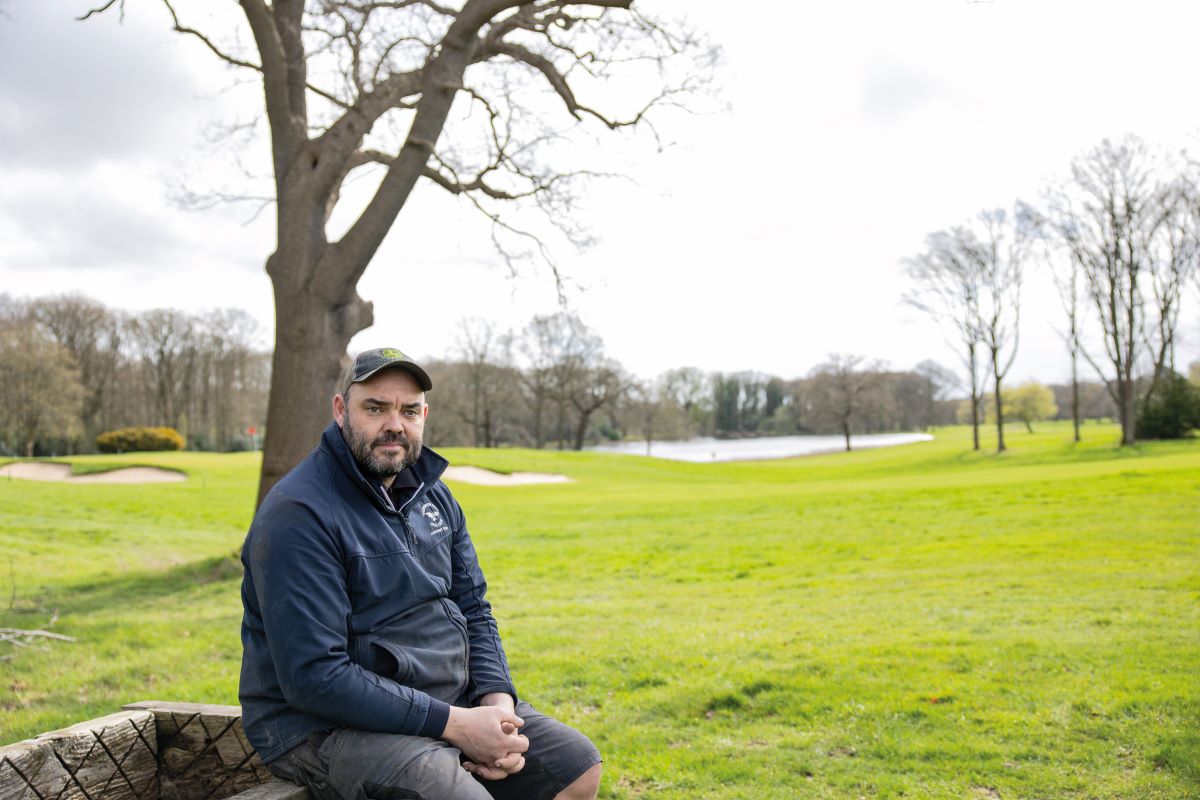
A new lease of life
Those first six months were a breath of fresh air for a man who desperately needed an escape. Out there on the Essex parkland course, he felt free of the stresses that had plunged him to such depths that a doctor had raised suicide concerns. There was something in the simplicity of the tasks that now filled his day as a casual greenkeeper that made him feel lighter, as though a burden had been lifted.
“A bit of mowing, some raking here and there – compared to where I’d come from with all that pressure, this was easy. My biggest concern was, ‘Am I going to be able to rake that bunker ahead of the golfers coming out in two hours’. There was no worrying about bottom-line profits, food stocks, liquor stocks, turnover, the employment budget – none of that.”
The early starts were nothing new, but the mid-afternoon finishes certainly were. David now had the luxury of time and the priceless gift of seeing more of his little girl. What was initially a six-month casual position has turned into a 16-year career in which David has enjoyed a couple of promotions. He may have come to it late, but he’s certainly made up for it.
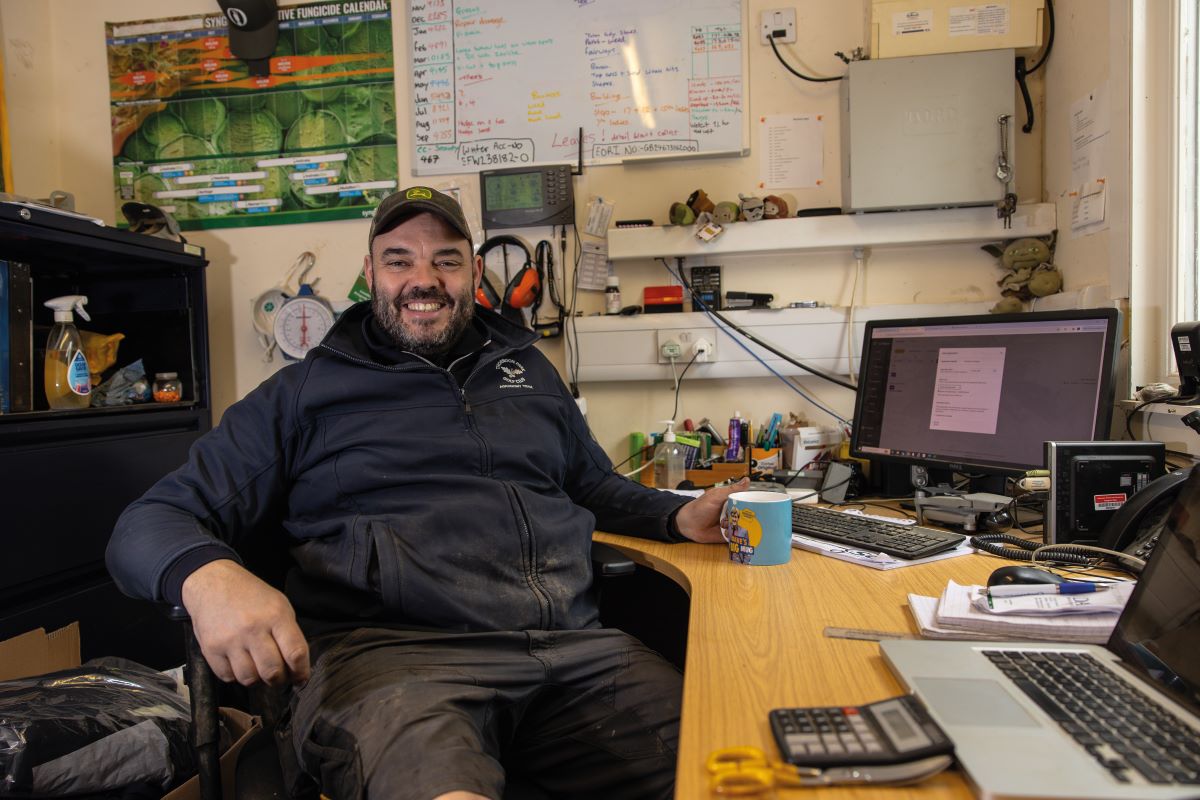
Full circle
Being head greenkeeper at a top 100 course brings its own expectations and David still has to pay attention to his mental health, as everyone should, but he is in a far happier place and his job has played a major role in that. “From losing my house and bankruptcy, I’ve gone full circle now, and I’m back on top. Even when you’re under pressure in this job, it’s not the same kind of pressure – it’s much more manageable and I have more people I can speak to. I was very isolated in my old job but now there’s a whole network of people I’ve met through volunteering at tournaments and through events organised by BIGGA, like BTME.
“Even if I might still have some wobbles – this year has been particularly tough with the weather – there are people out there I can talk to and share it with. You realise you’re not the only one.”
David experienced one of those “wobbles” a few years ago when, for reasons he’s still not entirely clear on, he was struggling again. This time he recognised the warning signs and immediately sought help, which resulted in some group and one-on-one therapy sessions. That was before the Covid outbreak but, in a fashion that many can relate to, David found solace in the isolation of lockdown as he was still able to work. Greenkeeping once again provided a positive outlet to soothe his mind, nourish his spirit and replenish his energy.
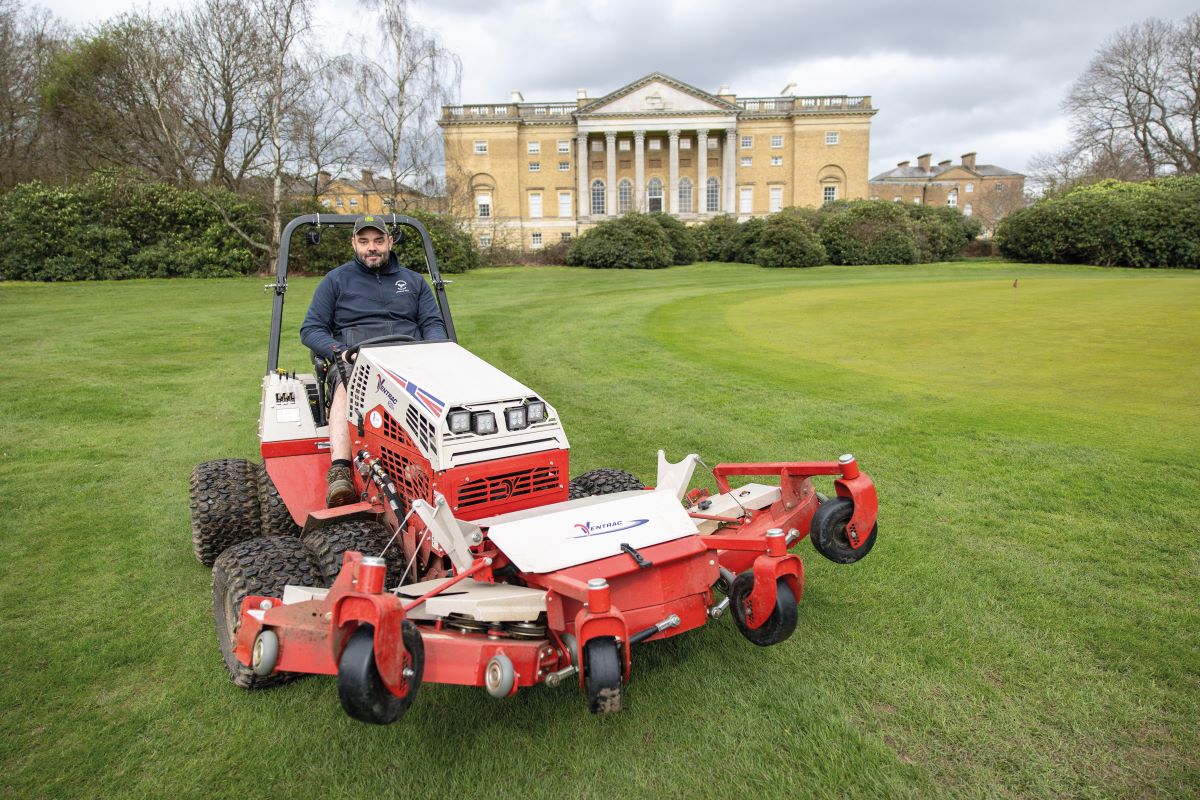
In the right place
The impressive reputation of the course at Thorndon Park is testament to how effectively David has channelled that energy into a job he clearly loves. Though much credit is due to the current team, David is quick to pay tribute to his predecessor. “Rob left us with a really good foundation to build on here. He mentored me and trained me, and I’ll forever be grateful to him for that; without him, I wouldn’t be where I am now. We do feel proud of what we’ve achieved here, but we’re still trying to do better. I’ll have been here 16 years in June, and I still come in every day with enthusiasm and a desire to do the work and improve things. I think for as long as that’s my mindset, I know I’m in the right place.” GI
David’s top tips to take care of your mental health at work
- Focus on the positives and don’t let criticism bring you down. It’s easy to let one complaint cloud the fact that 99 per cent of people are perfectly happy with the job you’re doing
- You’re outside working in nature – appreciate the fact that even a bad day in greenkeeping is better than a good day in some other jobs!
- Take pride in the work you do and be comfortable with praising your colleagues. Making others feel good can make you feel good
- Whatever you’re going through, there’s a good chance someone else is experiencing or has experienced the same thing – you’re not alone
- If you feel like you might be struggling, talk to someone
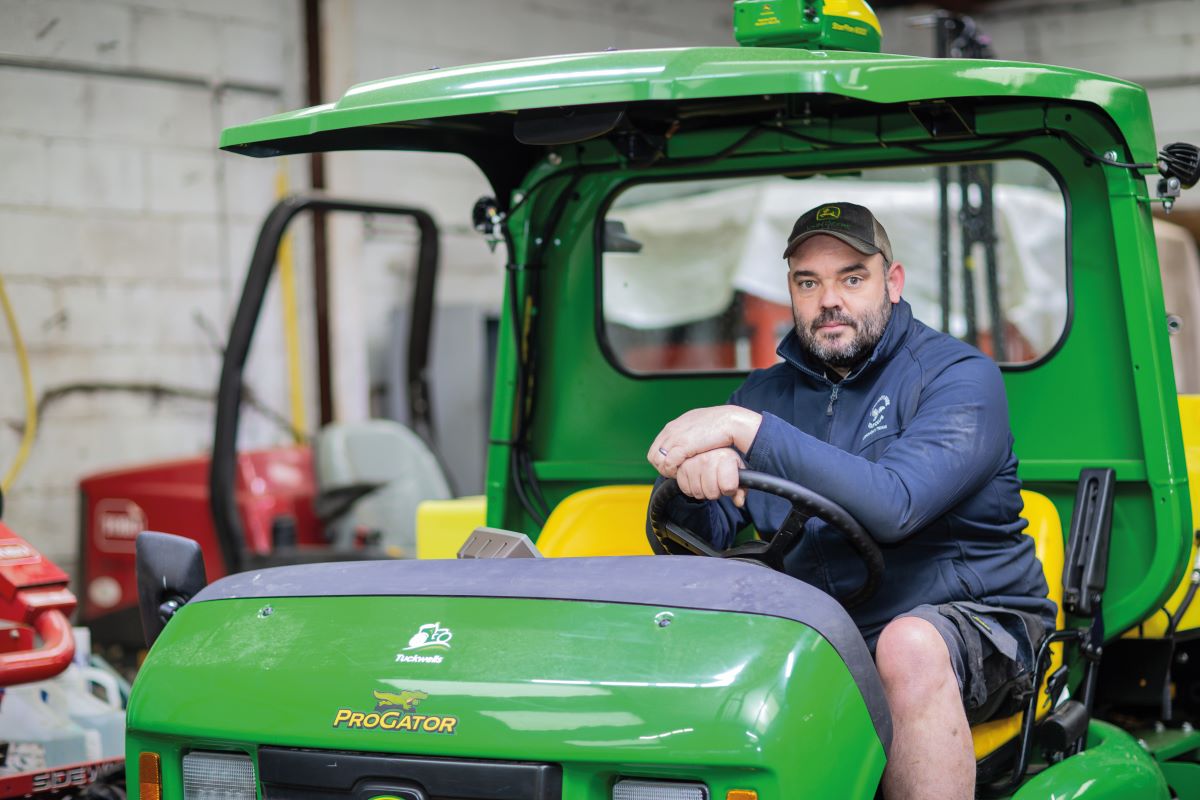
Breaking the silence to help others
Mick Davie suffered in silence. He was surrounded by noise – criticism, complaints, condemnation – but the Hazel Grove greenkeeper stayed quiet. Things were tough at work, with playing conditions worsened by factors beyond his control, and Mick bore the brunt of people’s anger. It felt like there was no escape from it, with harsh words bombarding him from all quarters.
“I was doing everything I possibly could,” he recalled in an interview with National Club Golfer in 2020. “But the more I was doing and the more nothing was happening, the more complaints were coming in and the more it was getting on top of me.” Mick did not go to his doctor but was looking for help and one day attended a stress awareness meeting by BIGGA at Sale Golf Club. It was an eye-opener.
“When I walked into the room, it hit me the hardest. There were 40-plus greenkeepers, many of them from prestigious golf clubs, many whom were friends and I realised none of us had been talking to each other. It was a big wake-up call.”
He couldn’t stay quiet any longer. Mick initiated regular meet-ups in Manchester for greenkeepers to get together and chat, then set up the ‘Greenkeepers mental health support group’ on Facebook. It now boasts 800 members. Mick retired in 2020, going out on a high after being honoured with BIGGA’s Outstanding Contribution of the Year Award at BTME. He still wanted to help those working in the industry that he was leaving behind.
“It’s not a case of pulling others out of the water, it’s trying to prevent them from being pushed into the water in the first place.”
About BIGGA’s Mental Health First Aiders
BIGGA is committed to improving conditions for greenkeepers and sports turf professionals to maintain a healthy, positive working environment.
To support this aim, we are offering members an internationally recognised Mental Health First Aid qualification, free of charge. The course is two days long and has a focus on recognising the signs of poor mental health. The workshop provides the awareness, knowledge and skills to start a conversation about mental health.
Richard Ponsford and Daniel Stock of Clevedon Golf Club both went on the course to become Mental Health First Aiders and vouched for the value of what they learned. Assistant greenkeeper Stock is relatively new to the industry but quickly recognised some familiar issues from his old job as a prison officer. “I saw in greenkeeping, even in a smaller team, that there were still people struggling with the same mental health issues I saw in prison and that’s why I wanted to go on the course – to brush up on my skills and get a better understanding,” he said. “The course was fantastic. It’s something that should be rolled out across every greenkeepers’ shed nationally.”
The workshop focuses on the potential benefits that connections and conversations between individuals can bring. While it will not in itself make you a mental health professional, you will be able to advise about services that may help. Those who undergo the training will be able to assist those around them by becoming a person that someone experiencing poor mental health can turn to in the first instance.
Ponsford, Clevedon’s course manager, said the workshop had given him the tools to recognise when someone may be in need of support and how to deal with such situations. “I would highly recommend everyone signing up. It’s been a great learning curve,” he said. “Everyone’s going to have a mental health problem at some point in their life and they just don’t know when it’s going to come along. Every business has a first aider, so why shouldn’t we all have a Mental Health First Aider as well?”
He has already put his training into practice on multiple occasions, highlighting how important it is for every club to have a qualified individual who can provide
support and advice to those struggling. BIGGA’s Mental Health First Aider course has the potential to help many people and undergoing the training offered is strongly encouraged.
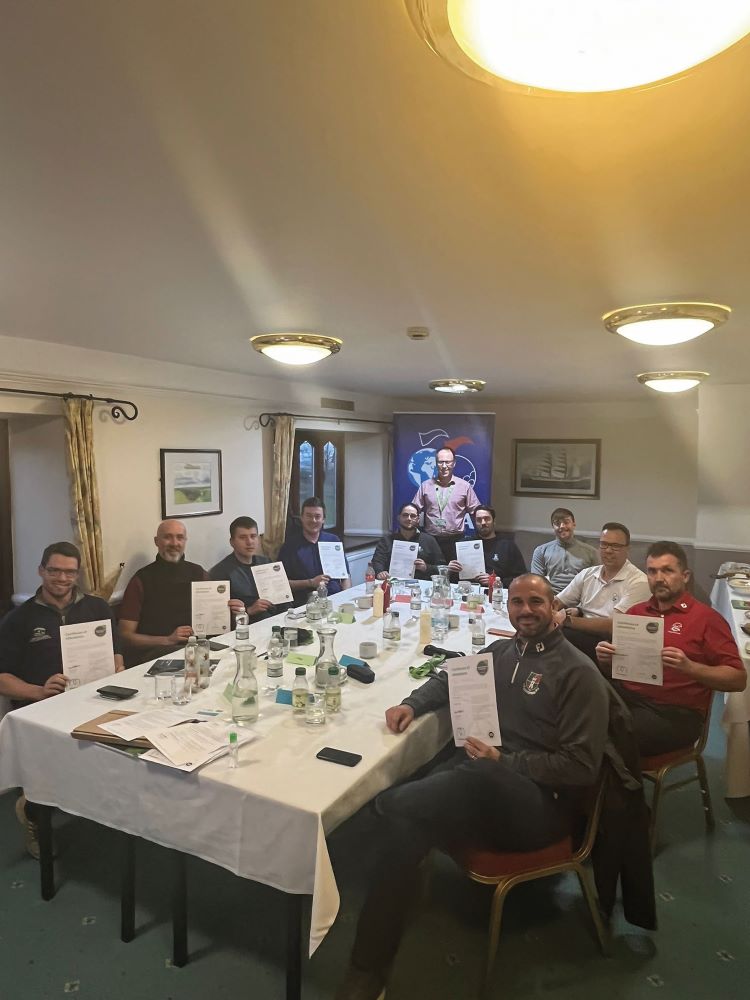
Author

